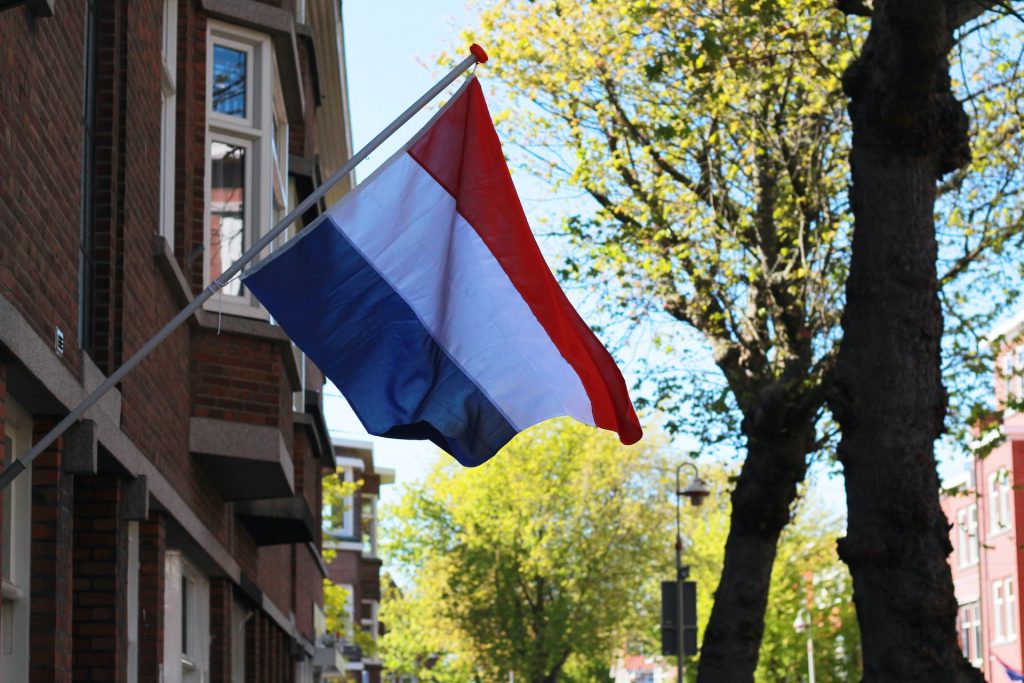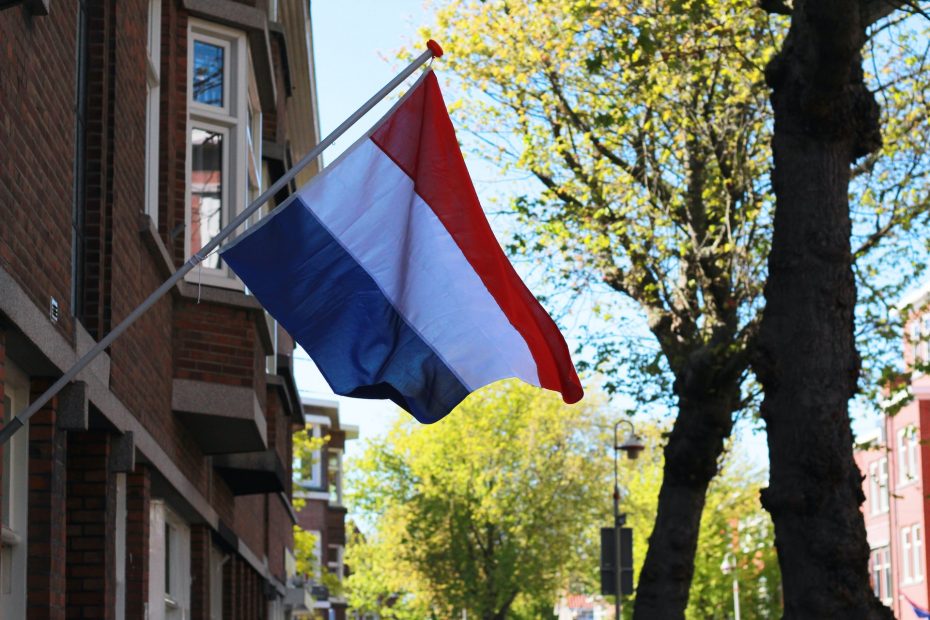Netherlands is a country in Northwestern Europe but why do you need to study in Netherlands? It is one of the preferred country for international students and in this post we will be giving you reasons why it is a popular country among international students. Out of the four nations that make up the Kingdom of the Netherlands, it is the largest. In the North Sea, it has maritime boundaries with Belgium, Germany, and the United Kingdom. The official language of the nation is Dutch, while the province of Friesland also recognises West Frisian as an official language. Dutch Sign Language, Sinte Romani, and Yiddish are recognized non-territorial languages, whereas Dutch Low Saxon and Limburgish are recognised regional languages. In the Caribbean, the three official languages are Dutch, English, and Papiamento.

Amsterdam, Rotterdam, The Hague, and Utrecht are the four biggest cities in the Netherlands. The most populated city and official capital of the country is Amsterdam. Europe’s busiest seaport is the Port of Rotterdam and the third busiest airport in all of Europe is Schiphol, which is the busiest airport in the Netherlands.
Why Study in Netherlands
The Netherlands, which has a population of 17.7 million people and has a total area of about 41,800 km2 (16,100 sq mi), of which 33,500 km2 (12,900 sq mi) is land. It is the second-most populated country in the European Union and the 16th most populated country in the world, with a density of 529 people per square kilometer (1,370 people/sq mi). Despite this, it is the second-largest exporter of food and agricultural goods in the world because of its rich soil, temperate climate, intensive agriculture, and innovation.
Aside this, international students all over the world come to Netherlands to study because not only does it offer quality education, it also offers degree in English despite the fact that Dutch is its official language. These are reasons why international students are especially drawn to the country.
Netherlands Has Many Degrees Offered In English
The Netherlands is renowned for being the first non-English speaking nation where institutions began to establish higher education study programs in English in an effort to draw in international students. In the Netherlands, there are more than 2,100 English-taught study programs and courses that can be taken for a bachelor’s, master’s, PhD, diploma, or certificate.
High-quality, reasonably priced instruction in a variety of subjects is available in this multicultural, tolerant country. Dutch institutions do, however, have stringent language requirements if you’re from a country where English isn’t the primary language. The TOEFL, IELTS, or a comparable English language test must be taken if you are an international student. Though these requirements may differ, for further information about the university’s criteria, you should check the school’s official website before applying.
Because the majority of the population speak English, the Netherlands is convenient for international students to get by in. Although many Dutch universities offer Dutch language courses for foreign students, I believe it is always beneficial to take an introductory course to at least learn the fundamentals. In order to make your time in the Netherlands more comfortable, you can also use additional web tools, new hip language apps, and dictionaries to take language lessons.
Exceptional Teaching Techniques
Dutch universities are renowned for their well-designed, contemporary curricula and facilities, which is why the country’s educational system is above the par when compared to other countries. International students can easily meet Dutch people as well as other international students in the Netherlands because of the teaching method’s emphasis on teamwork.
Excellent interpersonal relationships between professors and students are highly valued by Dutch universities. Small groups of 15 to 30 students attend tutorials and lectures. The majority of your coursework will involve group projects, which will help you improve both your collaborative and teamwork skills in addition to your academic abilities. The degree programs at Dutch institutions are quite practical in nature because their universities place a lot of emphasis on meaningful real-world experience, and they frequently collaborate with both domestic and foreign businesses.
In addition to general universities, there are also applied science universities that offer more specialised education. An applied sciences university might be more appealing to students who like to learn about real-world problems. These give greater attention to actual experiences and less attention to theories and studies.
You Have a Large Selection of Scholarships to Pick From
Fees are charged for undergraduate, graduate, and doctoral degrees at Dutch public and private universities however, free study in Netherlands for international students can be made possible if you are awarded a fully-funded scholarship. However, receiving scholarships heavily relies on your GPA and your chance of receiving scholarships increases as your grade rises in comparison to other applicants. Also, the academic year, competition, department, among others all play a role in winning a scholarship.
But even without scholarships, EU students have the advantage of paying lower fees compared to non-EU students. The average cost of a Bachelor’s degree in Netherlands is between 2,000 and 6,000 euros per year, whereas a Master’s program starts at 8,000 euros and can cost up to 20,000 euros per year.
The easiest approach to make sure you can afford the hefty charges is to submit an application for a scholarship. Here are some of the scholarships for international students in Netherlands:
Amsterdam Merit Scholarship
The University of Amsterdam is a public university in Amsterdam, Netherlands. It enjoys a stellar reputation throughout the continent. This school offers merit-based scholarships for outstanding international undergraduate students. Students pursuing degrees in social and behavioural sciences, psychology, and business and economics are eligible for this scholarships.
University Of Twente Scholarship
University of Twente also awards students with exemplary academic records scholarship. This scholarship is open to both European and non-European international students. Your admissions process is not related to how you apply for University of Twente scholarship in the Netherlands. You must satisfy all criteria listed in the scholarship link in order to be eligible for this award. Before you apply, you must have been accepted into a graduate program, and your results for the English language examinations indicate that you have achieved the necessary marks.
All applications are filed online, and after submitting the necessary information and the application, you will get a confirmation. Your application will be evaluated by the committee, and once it is complete, you will be notified.
Holland-High Potential Scholarship at Maastricht University
This scholarship is a combination of the university’s high potential scholarship, which is funded by Maastricht University, and the Holland scholarship, which is funded by the Dutch Ministry of Education, Culture, and Science. This is one of the best scholarships in the Netherlands for international students. Graduate students from abroad who excel in their particular graduate programs are awarded this scholarship.
Impact Scholarship at Erasmus University Rotterdam – L-EARN
International students from developing countries are eligible for the L-EARN for Impact Scholarship at Erasmus University Rotterdam. This program strives to support the economic growth of these emerging countries. Recipients are expected to return to their home countries after completing the program in order to support the economic and social development of their respective home countries.
Scholarship Amount: Full or partial tuition cost waiver, as well as payment of visa, residence permit, health insurance, and liability insurance expenses.
Qualifications: Graduate studies.
World Citizen Talent Scholarship
The Dutch government offers international students who are studying in the Netherlands the World Citizen Talent Scholarship. The scholarship entitles you to free academic or vocational study at any Dutch institution.
Your aptitude and talents, not your citizenship or financial condition, will determine how much money you receive. You must be an international student accepted into a full-time Master’s program at a Dutch university or college in order to be eligible for this scholarship.
You must be enrolled in a Master’s program before you may apply. then deliver the necessary application form and supporting documentation to the college.
Well Recognised Degrees
The Netherlands has a reputation for being a hub of knowledge with a long history of higher education. At the national and international levels, scientific research at Dutch institutions is very highly recognised. The country has a reputation for having top-notch education that adheres to all international norms. A degree from a Dutch institution offers the chance to launch one’s business or pursuing a successful career in any country in the world.
The Universities of Amsterdam, Leiden, and Utrecht are the most renowned universities in the Netherlands. I would personally recommend Maastricht University because I have heard great reviews form friends and family pursuing their Master’s in Netherlands. The school is well recognised and uses an amazing teaching strategy called project-based learning. This encourages you to engage in active learning, take part in group projects, and concentrate on practical issues.
Great City
One of the most well-liked student cities in the Netherlands is Amsterdam. More than 100,000 students from all around the world live in the cosmopolitan city. There is always a friendly student association available to you in Amsterdam. The many modern, entertaining, and reasonably priced restaurants and the best food & lifestyle venues reflect Amsterdam’s distinctive, energetic spirit. Haarlem and Amsterdam are the most loved cities by international students. I wondered why until I traveled there myself. Some international students find that studying in Amsterdam can be a bit culture-shocking, but because Amsterdam is so diverse, you’ll never feel out of place there. In order to make your time spent studying in the city one you won’t soon forget, the area contains clubs, libraries, friendly locals, and, of course, prominent educational institutions.
Inexpensive Cost of living
The cost of living in the Netherlands is quite inexpensive when compared to other parts of western Europe. You will require €800–€1,000 every month based on my own experience and that of my friends. You can work two part-time jobs and take finance classes to pay for this. Student OV-Chipkaarts with free weekday or weekend public transportation are available to EU citizens who work 32 hours per month and qualify for a €265 subsidy.
For students looking for housing, there are several helpful websites that can assist you with this. Given the high demand, I would suggest that you begin your search for housing as soon as possible. In my opinion, May, June, and July are the best months to start looking for housing if you want to start your studies in September. Do not wait until August since you will either find pricey or subpar accommodations.
Numerous clubs, restaurants, museums, and theatres offer student discounts as well. Transportation is quite easy as well, a bicycle makes it simple to navigate around town. In addition to being distinctively Dutch, this is also a cheap mode of transportation. If you want to receive a lot more discounts and privileges, you should request an International Student Identity Card.

Active and Healthful Lifestyle
The healthiest people in the world are the Dutch. If you study in the Netherlands, you’ll find yourself becoming healthier without even realising it. Unquestionably, the national cycling culture has a role in some of this. The Dutch place a high priority on athletics and other forms of physical activity. You’ll have many options to play sports or just get some exercise by joining other international students studying abroad in the Netherlands in groups or teams. Being physically active and interacting with others help to clear the mind and prepare it for the rigours of living and studying abroad.
The Netherlands is a relatively small nation, and this is one of its charms. You can access amazing locations and activities. Leiden and The Hague are close to big cities like Amsterdam, Rotterdam, and Utrecht for people who prefer city living. With lots of chances to enjoy music, theatre, restaurants, cafés, architecture, and art, they make excellent day outings or weekend getaways. You also have a lot of options if you’d prefer to unwind and get inspired in nature. You may spend some time at one of the many sandy beaches sprinkled all throughout the Netherlands’ coastline.
In addition to being a gateway to Europe, the Netherlands is also one of the best places in the world to live, as if all these benefits weren’t enough. The Netherlands is one of the safest nations in the world, according to the 2016 Global Peace Index, and according to the OECD’s Better Life Index, it is one of the happiest. Last but not least, most of Europe’s capital cities are only a few hours distant due to the nation’s strategic location and first-rate transportation systems.
Best Courses to Study in Netherlands
Universities in Netherlands have an array of courses students can select from. But some of the top courses international students can make a pick from are;
- Engineering
- Business and Finance
- Sciences
- Sports Management
- Agricultural
- Liberal arts
- Philosophy
- Fashion
Conclusion
Netherlands is a great study abroad destination. As a student, you can study and work in Netherlands. No two admission process is the same. To find out the application procedure, get in touch with potential institutions beforehand. Then fill out the lead form to get in touch with the admissions staff. Although applications are normally submitted in September and October, there is intense competition for a small number of seats in particularly popular courses, especially those in professions like law and medical. Even though one of the disadvantages of studying in Netherlands is its extremely rainy weather, don’t worry, with an umbrella, you are good to go!
